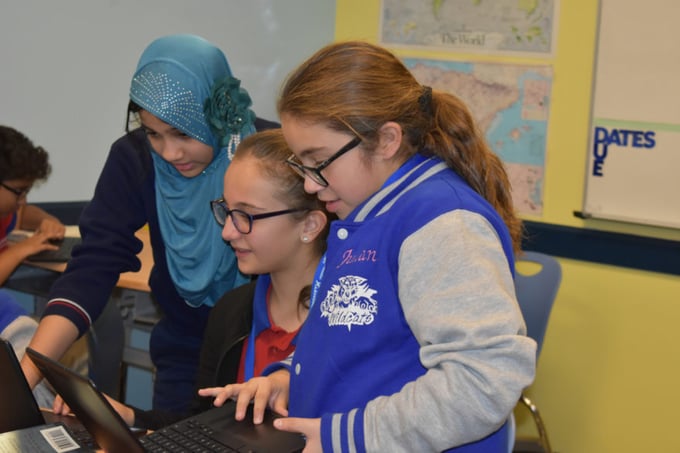Anjali Nanda is an experienced and passionate PLTW and AP Computer Science teacher, PLTW Master Teacher, and Air Force Association CyberPatriot Coach with more than 10 years of teaching experience. She currently teaches computer science at both high school and middle school levels at Harmony School of Innovation – Katy in Katy, Texas.
The world is moving toward greater reliance on computer science in every field. Every student from PreK-12 should have an opportunity to study computer science, as it encourages them to develop problem-solving skills and inculcates logical thinking.
Further, it helps students see and use smart gadgets – such as phones, apps, machines in smart homes, Alexa, the list goes on – from a completely different perspective, as we are empowering our students to enhance or customize the algorithmic thinking and programming of the things around them.
Each child’s reception to and pace with thinking programmatically might be different, but access to computer science will open their minds to the endless opportunities.
Students work with persistence as they discover the capability of computer programming, help each other learn while working as a team or pair programming by switching roles between driver and navigator, and develop stronger interpersonal bonds.
Their learning is further enhanced as they integrate their other subjects with computer science, which reflects in the quality of their class projects. They also learn about the importance of security when interacting with the internet, and start taking responsibility for it.
But don’t let me convince you of the importance of computer science. I asked some of my students to share their advice to others interested in the subject, and here are some of their responses:
- “For current and potential computer science students, I would say to be patient and persistent. Coding, a large part of computer science, requires creativity skills that take time to develop. Creativity is needed to find the most efficient solution, but you just have to keep trying over and over again to reach that optimal result.” – Sanika Mahatre, sophomore
- “According to Moore's Law, technology will double almost every two years. Since computer science and robotics will play a key role in society, learning these subjects will greatly improve your chances for jobs in the future.” – Rahman Adewumi, junior
- “Computer science may seem intimidating, but it will seem much less intimidating the more time you invest into practicing.” – Tobi Orekoya, senior
- “The future is going this way and in the end, [computer science] is quite simple and is just like everything else in life: It requires a little practice, which will one day lead to major reward.” – Aden Sanchez, sophomore
- “To students in or interested in being in a computer science class, I'd tell them to always remember that it's okay if you mess up or don't understand everything the first time around. You can always ask someone for help and support.” – Isobel Bodefeld, sophomore
Teaching computer science keeps me motivated and excited to go to my work every morning. My classrooms are more exciting and there is never a dull moment.
Technical background is not required to teach PLTW Computer Science. Experienced PLTW Master Teachers conduct PLTW Core Trainings across the country, and these can help you learn computer science and how to teach it. In addition, teachers receive peer support via an online community throughout the school year.
In 2015-16, we started with offering only one Computer Science Principles course. Due to high student interest in computer science classes, we now have PLTW’s entire computer science pathway at our 6-12 school, and during the year 2017-18 school year, we earned recognition as a PLTW Distinguished School for our PLTW Gateway program.
PLTW’s blog intends to serve as a forum for ideas and perspectives from across our network. The opinions expressed are those of each guest author.

